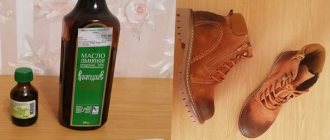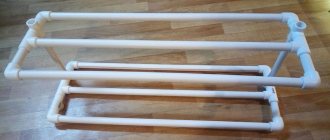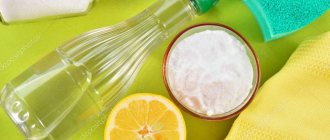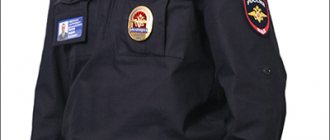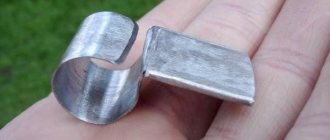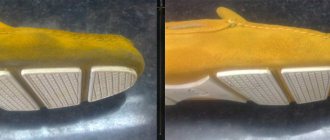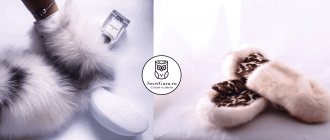As a rule, three reasons lead to the appearance of an unpleasant odor in new and old shoes: poor-quality material, fungal diseases and excessive sweating of the feet. If, when choosing new shoes, you notice an unpleasant odor from the material, it is better to immediately refuse such a purchase.
But to eliminate the odor that appears during the use of shoes, you can use one of the proven home recipes for the smell of sweat in shoes. How to get rid of the smell of sweat in shoes - read in Colady.
Pexels Photos
What to do first
An unpleasant odor is a surprise that sooner or later any shoes made of leather or synthetic materials present. But before you start disguising it, you need to prepare your shoes:
- laces and insoles are removed;
- the sole is washed from dirt;
- the tongue is turned towards the toe.
Without preliminary cleaning, stains will certainly remain on the surface. This is especially true for sneakers, creepers, ballet shoes or moccasins made of thick fabric.
It is recommended to wash laces and insoles separately using laundry soap or powder.
Causes of unpleasant amber
Before you think about how to quickly remove odor from shoes, you need to understand the reasons for its occurrence. The following factors can influence the appearance of bacteria:
- increased sweating;
- fungus;
- circulatory disorders in blood vessels;
- violation of personal hygiene rules;
- lack of preventive shoe care;
- wearing hosiery made of synthetic materials;
- low quality artificial leather shoes;
- active lifestyle;
- wearing shoes that don't fit;
- storage in a room with high humidity.
How to get rid of odor in shoes: 12 ways
The main cause of odor is improper shoe care. In closed shoes, feet sweat a lot, which causes the proliferation of pathogenic bacteria, fungi and other microorganisms. Therefore, if you don’t want to blush in front of your friends when visiting them, be sure to get deodorant.
Hydrogen peroxide or potassium permanganate
If you treat your shoes with hydrogen peroxide, they will immediately stop smelling. The product has antibacterial properties, so it destroys flora, which causes the unpleasant odor. To put your sneakers or slippers in order, you need:
- moisten a cloth generously in peroxide;
- wipe the inside and outside of the sneakers;
- leave until completely dry for 5-7 hours.
Peroxide has brightening properties, so it should not be used on dark suede, leather or nubuck shoes.
Potassium permanganate (potassium permanganate) does an excellent job of eliminating the smell of sweat:
- on the tip of a knife, the powder is dissolved in warm water until a pale pink solution is obtained;
- pour the liquid into a spray bottle;
- spray the inside and outside of the shoes;
- dry at room temperature for 7-10 hours.
For excessive sweating (hyperhidrosis), it is recommended to take daily baths with potassium permanganate and use powders with talcum powder.
Lemon
The smell of dampness and mold is a clear sign of fungal infection of the skin of the feet. To clean shoes from mycotic flora, use products with lemon. It contains antiseptic and deodorizing components that easily eliminate odors from shoes.
Folk recipe for shoe deodorant:
- peel the lemon;
- squeeze the juice onto a cloth napkin or gauze;
- wipe shoes from the inside;
- leave until completely dry.
To ensure that your shoes always exude only a pleasant citrus aroma, it is recommended to steal lemon zest into them at night.
Green tea and coffee
Products that have adsorbing properties get rid of shoe odor. Green tea and ground black coffee are used as adsorbents. Both products remove unpleasant odors and excess moisture from boots or sneakers. Therefore, conditions are created inside the shoes that are unfavorable for the proliferation of fungal flora.
How to eliminate foreign odor from tea or coffee:
- large-leaf green tea or ground coffee is poured into a fabric bag or sock;
- place it in shoes overnight;
- the tongues are turned towards the ankle boots.
For hyperhidrosis, it is recommended to pour a small amount of coffee under the insoles. Bagged green tea is no less effective.
Tea without flavorings should be used as an adsorbent. This eliminates the possibility of mixing the smell of sweat with kiwi, jasmine, barberry and other flavors.
Ethanol
Ethanol is an effective odor remover that has disinfectant properties. To clean your shoes, use vodka or diluted medical alcohol. To prepare vodka 40°, you need to mix 500 ml of 96% ethanol with 700 ml of water.
How to treat sneakers or boots:
- vodka is poured into a spray bottle;
- the inner surface of the boots and soles are irrigated with alcohol;
- after 10-15 minutes, remove the remaining liquid with a paper or cloth napkin;
- Dry the shoes at room temperature.
This method is suitable for combating the unpleasant aroma of new shoes, the smell of dampness and fungus. But experts do not recommend using alcohol to treat natural leather, as it will become hard and deformed.
Ammonia solution
Ammonia is a product that quickly eliminates the unpleasant odor from shoes. It neutralizes acids, which are a favorable environment for the proliferation of pathogenic flora. Suitable for processing, for example, sneakers or moccasins.
Algorithm of actions:
- a cloth or gauze is generously moistened in an ammonia solution;
- carefully treat the inside of the sneakers;
- place shoes in the hallway or on the balcony for 2-3 hours;
- dry at room temperature for 5-7 hours.
An ammonia solution is suitable for both combating and preventing unpleasant odors. During the warm season, it is recommended to treat closed shoes at least once a week.
Vinegar
To prevent shoes from smelling, use 9% vinegar. It is suitable for cleaning sneakers, moccasins and boots with lining made of artificial materials. In case of excessive sweating of the feet, the procedure is performed once every 1.5 weeks.
Features of using vinegar:
- vinegar essence is mixed with water in a ratio of 1: 15 (1 tsp per 5 tbsp);
- the solution is poured into a bottle with a spray nozzle;
- generously moisten the inner surface of the shoe;
- after 15 minutes, excess liquid is removed with a towel;
- dry at room temperature for 5-7 hours.
Using concentrated vinegar can lighten dark pigskin linings. It is not advisable to use the product to treat shoes or sneakers made from natural materials.
Essential oils
Essential oils are oil-like plant extracts that emit a strong aroma. Only they can help if the cat has marked the sneakers. Uric acid crystals do not dissolve in either alcohol or water. Even after washing, the sneakers continue to remind you of the four-legged’s dirty tricks.
If your cat has declared war on you, hide all your shoes in a closet or locked cabinet. To eliminate the consequences of his actions, you need to:
- wash sneakers or boots in a solution of warm water and washing powder;
- rinse thoroughly with running water;
- dry at room temperature.
For deodorant, it is recommended to use essential oils with a pronounced scent:
- lemon;
- ate;
- juniper;
- grapefruit;
- mint;
- ginger;
- jasmine;
- cedar;
- marjoram;
- bergamot;
- orange
Add 40-50 drops of essential oil to 100 ml of water. Spray on the lining of sneakers, moccasins, creepers or ballet shoes. To be sure to get rid of cat odor, soak a cardboard strip in essential oil and place it under the insole.
Activated carbon
Pharmaceutical charcoal has adsorbing properties. It perfectly absorbs moisture and foreign odors. It is enough to put it in your shoes so that they do not stink:
- 15-20 tablets are placed in a bag or sock;
- put it in sneakers or boots;
- leave overnight.
The product fights the smell of sweat, dampness and unwashed socks. But you shouldn’t have high hopes for it if the shoes haven’t been washed for a long time. If worn regularly, it is recommended to give your sneakers “water treatments” at least once a month.
Activated carbon may stain light-colored lining. Therefore, it is advisable to put the tablets in a bag.
Salt
To save a smelly pair of sneakers, use table salt. Like many other odor control agents, it adsorbs molecules of amines, sulfur compounds and aldehydes. Salt easily eliminates odors of mold, sweat, and dampness. If you get caught in the rain, you can use it to immediately dry your shoes.
Features of using salt:
- pour 5 tbsp into socks. l. salt;
- put in each half-pair for the whole night.
If the sneakers are wet, heat the salt in a frying pan before use. This will speed up the drying process by 2-3 times. To make your shoes smell nice after treatment, you can sprinkle the salt with essential oils or fragrances.
Soda
Folk remedies for combating unpleasant shoe odor are no less effective than store-bought deodorants. If you need to tidy up shoes, sneakers, or boots with a light lining, use sodium bicarbonate. Like salt and starch, it adsorbs aromas and moisture.
How to use soda:
- pour 5 tbsp into a bag made of breathable fabric. l. soda;
- placed in each semi-pair for 7-10 hours.
If you don't want to hassle with finding matching socks or pouches, just pour baking soda into your sneakers. After 10 hours, shake it out or remove it with a vacuum cleaner. If necessary, soda can be replaced with powders that contain salicylic acid. This product can be used both for prevention and to combat odors.
Low temperature
The smell of sweat is a consequence of the active reproduction of bacterial or fungal flora in shoes. To eliminate it, it is necessary to destroy pathogenic microorganisms. If you don't want to wash your sneakers or shoes, simply chill them in the freezer. At sub-zero temperatures, most bacteria and fungi die, so the smell disappears on its own.
How to freeze boots:
- pack the shoes in a plastic bag;
- put in the freezer;
- remove after 3-5 hours.
It is not recommended to perform the procedure with patent leather shoes or boots. From frost, the tops of such shoes will begin to crack.
If your new boots or sneakers smell like mothballs, use dry mustard. As with baking soda or salt, place it in a bag and leave it in your shoes overnight.
Household chemicals
Washing is the most effective way to combat unpleasant odors. In this case, it is not masked, but removed with contaminants. To clean shoes, use special shampoos, gels, foams and other products:
- Combi Pflege Schaum is a universal foam for cleaning leather and artificial materials that removes all types of dirt. Fights unpleasant odors and salt stains.
- Pure One is a shoe shampoo that provides long-lasting freshness to sports shoes. Forms a film on its surface that prevents contamination, but allows the feet to breathe.
- Shoe Clean is a product based on lemon essential oil, intended for washing sneakers and moccasins. After drying, it exudes a pleasant aroma for a long time.
- Organics Sports – spray for dry cleaning of shoes, boots, sneakers and boots. It has antiseptic and deodorizing properties, therefore eliminating the smell of sweat.
- Tarrago Shampoo Spray is a cleaning foam designed for dry washing of shoes made from natural materials. Eliminates unpleasant odors, stains, and salt stains.
Regular washing powders and gels are suitable for cleaning slippers. To cope with the pungent smell of mold, add 100-150 ml of antiseptic - Chlorhexidine, Miramistin - to the soap solution.
Prevention measures
You need to take more care of your shoes than your clothes. The set of necessary measures depends on the quality of the product: lining material, outer surface, style, tailoring. Summer shoes should be light, made of natural fabric, shoes and boots should be made of leather, like the lining, winter boots should be lined with fur.
The appearance of an unpleasant odor is affected by the size of your shoes. In tight little shoes, the foot is tense, the toes are bent, pressed against each other, which provokes even more sweat production and a stronger odor. In addition, the hard, uncomfortable model rubs your feet, leaving bloody stains on the lining, which also subsequently begin to emit an odor.
Among the main recommendations:
- Don't wear the same pair all day. At work, you need to change into comfortable shoes, and if the collective etiquette and dress code allows, you can wear comfortable fabric sneakers or slippers.
- If your job is sedentary, you shouldn’t wear shoes at your desk; it’s better to air your feet, and put on shoes only when you need to go somewhere.
- Wearing the same pair every day is also harmful; your shoes need to “rest.”
- Be sure to wear clean socks and stockings every day, changing them several times a day if necessary, without allowing the smell from the laundry to leak further.
- Wash insoles several times a month and replace worn ones.
- Wipe products with antiseptics every few days.
- Use shoe deodorants if you sweat excessively.
To prevent mold from growing in your shoes, you need to store them in a dry place, preferably on open shoe shelves. There should not be a sink, bathtub or other “wet objects” nearby; the temperature should be room temperature. In the cold season, it is sometimes worth taking items out onto the balcony. Winter boots and boots with natural fur are stored in closed boxes or special cases to block access to moths.
Have several pairs of shoes for each season
Wash insoles several times a month
Use shoe deodorants
How to prevent odor
If you don't take care of your shoes, sooner or later they will start to smell like unwashed socks. To prevent foreign odors, it is recommended:
- wash boots once every 2-3 weeks with regular wear;
- use deodorizing products every day;
- treat the interdigital area with talc or antifungal powder;
- put a bag of starch or baking powder in your boots at night;
- use socks only made from natural materials;
- limit pets' access to shoes.
There are many ways to protect shoes from dirt and stench. Homemade deodorants with essential oils, ammonia, potassium permanganate and lemon do the best job. If you use the product 1-2 times a day, you will never have to give up an unplanned visit.
Foot deodorant
To prepare powder deodorant you need the following ingredients:
- Approximately 30 drops of essential oil
- 100 grams cornstarch
- A container where you will store the deodorant itself. The best option is a special jar for storing powder with a strainer.
- You can use any scented oil you like, such as sandalwood, lavender, mint, and so on.
Pour starch into a bowl, add essential oil little by little, stirring lightly. Place the finished deodorant powder into a container where it will be stored. How to use homemade foot deodorant? Regularly apply the prepared powder to the skin of your feet (preferably after a morning shower), paying special attention to the spaces between your toes. The powder can be applied not only to the feet, but be careful not to let the powder get on the mucous membranes, eyes and mouth.
If the shoes are “marked” by the cat
The cause of the pungent odor can be the tricks of your beloved pet. The biggest catch is that the smell of cat urine is very persistent and difficult to remove; water does not affect the uric acid crystals. What can I do to prevent my shoes from smelling in this case? Treatment must begin immediately and be carried out very carefully. If you leave even a drop of sticky urea, the slightest wetting and bad aroma will return again. The algorithm of actions includes five steps.
- Inspection. Throw away your insoles; most of the urine accumulates on them.
- Wash. If the shoes are made of fabric materials, then wash them with glycerin soap.
- Wiping. Genuine leather does not tolerate washing, so treat it with a solution of potassium permanganate. Dilute several manganese crystals per liter of water, wipe the boots well, then dry and ventilate.
- Drying. If your urine smells old, use acetic acid. Mix water and vinegar in equal proportions, wipe the shoes and cover the wet areas with baking soda. When dry, remove the residue and leave the boots to dry.
- Treatment. At the end of the procedure, treat your shoes with a special animal repellent to prevent the situation from happening again.
Article on the topic: Why membrane shoes are not suitable for calm children
Mold control
Storing shoes in a damp area can lead to mold growth. But don’t rush to throw away a pair, all is not lost. A three-step algorithm of actions will help.
- Washing with soap. First, wash your boots in warm soapy water and wipe the inside with vinegar to disinfect.
- Wiping from the inside. Now mix ammonia and vodka in equal proportions and thoroughly wipe the inside of the shoes.
- Drying. Leave the shoes to dry for a couple of days. Never wear uncleaned shoes; moldy fungi are dangerous to the skin.
